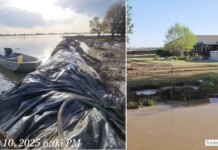 Gearing up for October elections, Côte d’Ivoire (the Ivory Coast) faces fear that a renewed eruption of violence between ethnic groups will destroy any progress towards political reconciliation. But in Trogui, a village once divided by ethnicity, one man has become a pivoting force away from violence and toward peaceful coexistence. Thanks to the training he received from the non-profit group, Search for Common Ground, he was able to create solidarity where there once was hostility.
Gearing up for October elections, Côte d’Ivoire (the Ivory Coast) faces fear that a renewed eruption of violence between ethnic groups will destroy any progress towards political reconciliation. But in Trogui, a village once divided by ethnicity, one man has become a pivoting force away from violence and toward peaceful coexistence. Thanks to the training he received from the non-profit group, Search for Common Ground, he was able to create solidarity where there once was hostility.
While rival politicians in Côte d’Ivoire are set to meet tomorrow to work out plans for nationwide disarmament and a United Nations peacekeeping force has been deployed there for three years to assist the two sides in implementing a signed peace agreement from January 2003, the stark divisions of civil war, which began in 2002, still remain.
Search for Common Ground’s goal is to transform the way individuals, groups, and entire societies deal with conflict: moving away from violence and adversarial behavior to nonviolence and cooperative problem-solving.
In Cote d’Ivoire, Alex Zro Gomé is one person who has helped an entire community realize these goals. . . (story idea and link submitted by GNN volunteer Amber Tanner of Toronto)
Cote d’Ivoire’s conflict is characterized by ethnic and regional differences, particularly between those who see themselves as indigenous and those who have originally come from neighboring countries like Burkina Faso. This dynamic played out on a smaller scale in the village of Trogui, in the rebel-held northern part of the country. In July 2005 a domestic dispute between Yacouba (indigenous) and Burkinabé (from Burkina Faso) families resulted in the murder of a Yacouba woman by a Burkinabé youth. This isolated criminal act quickly escalated engulfing the entire community, with wide-scale retaliations between the two groups until UN forces were called in to quell the violence.
To reinforce the local capacity for peace building, Search for Common Ground provides training and mentoring for local peace activists helping them effectively intervene in community conflicts. Alexis Zro Gomé from Trogui participated in one such workshop learning how to mediate and improve listening skills; to reframe angry statements to elicit constructive responses; to differentiate people’s positions and interests; and to analyze the causes and symptoms of conflict. He learned that peacemaking is a process that requires patience, determination, and flexibility, and will not occur overnight.
Energized by what he had learned and experienced, Alexis returned to Trogui determined to bring the two divided communities together. He helped the community to develop a peace committee — comprised of Yacouba, Burkinabé, women, and youth. The committee took a leading role in mediating and reconciling the two groups and in helping Burkinabés regain looted property. It spearheaded the construction of a "maison de solidarité", jointly built by the two communities as a meeting space and guesthouse for visitors of all ethnicities.
The peace committee and SFCG organized a solidarity event in March 2006 to celebrate the progress that the people had made. The event brought together the two communities as well as representatives of 18 surrounding villages, the UN Mission in Côte d’Ivoire (ONUCI), Licorne forces, the World Bank, as well as local officials and more than 10 traditional chiefs. Speeches, traditional dancing, and a communal meal reaffirmed their commitment to reconciling past wrongs. The tremendous efforts of the peace committee were acknowledged and as was the work of one man in particular, Alexis Zro Gomé.
– Reprinted and edited with permission,
Search for Common Ground (sfcg.org)



















